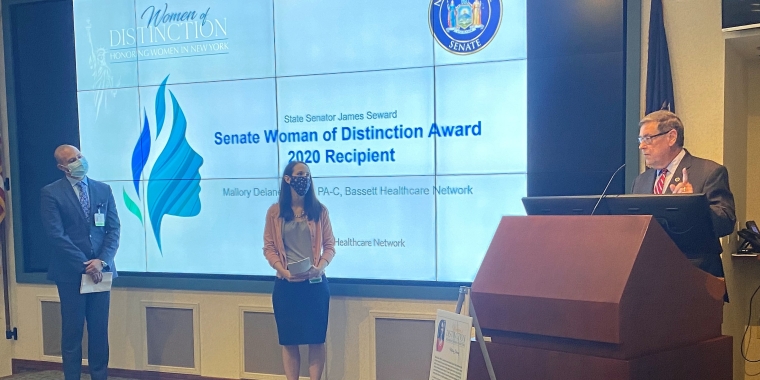
Albany Scofflaws Skirt Budget Process
James L. Seward
April 22, 2010
-
ISSUE:
- Budget

The state budget impasse continues in Albany and unfortunately, the log jam doesn’t look like it will break anytime soon.
One reason the budget is late is because political leaders have failed to open up the process and begin public, bipartisan conference committees as required by law. For a number of years, informal conference committees, made up of rank and file lawmakers, met in full view of the public and the media to hammer out a final budget agreement. The process worked so well that in 2007, the process was formalized and adopted into law.
The “Budget Reform Act of 2007” established legal guidelines and timetables for the appointment of joint legislative budget conference committees to conduct public budget negotiations. Under the law, senate and assembly leaders are required to put out a schedule within 10 days after the governor submits his proposed budget, which Governor David Paterson did on January 19th this year. The schedule would include dates for:
• Requiring each house of the legislature to approve a budget resolution detailing their priorities;
• Establishing joint, bipartisan budget conference committees for different areas of the budget;
• Scheduling open, public budget conference committee meetings to examine and settle differences on key budget measures; and
• Each conference committee to issue final reports and budget recommendations.
The process was immediately put to the test. In 2008, then Governor Spitzer was caught up in scandal and resigned in disgrace. Lieutenant Governor Paterson was called upon to take over the reins of state government and help broker a final budget agreement. The senate was able to finish work on a budget prior to the April 1st deadline, and through the effective use of conference committees, complete work on a final spending plan just a few days late; not bad considering the unprecedented circumstances.
Then came 2009. In a stark turnaround, the budget process reverted to the days of closed door deal making, with the governor, senate leader and assembly speaker meeting in secret and concocting one of the worst budgets in state history. The record spending plan included $8 billion in new taxes and fees, driving businesses and families out of our state.
Once again this year, transparency and accountability have been completely forgotten. The 2007 Budget Reform law has been abandoned, there are no substantial negotiations taking place, and the public is paying the price.
In the absence of a state budget, the legislature has been forced to vote on emergency extenders that keep basic government services functioning. The governor controls what is included in the “bare bones” spending bills and he has left a lot out. The most notable omission, funding for already approved construction and transportation projects, is having a very real effect on families in the 51st district.
With the state failing to honor previous contracts, companies are forced to shut down work projects and lay off workers. The move is a major blow to many families that are already struggling to make ends meet. The work stoppage also threatens public safety. Critical infrastructure improvements, especially upstate, are being delayed because the state is not meeting its obligations.
I spoke personally with the governor and urged him to release the state funding for the already approved construction projects. While I understand that he is trying to bring parties to the budget negotiating table, holding construction jobs hostage and penalizing innocent families is the wrong method.
Many legislators lack a sense of urgency when it comes to the budget negotiations. I bet if they sat down at the dinner table with many of the families in my district they would have their eyes opened to the realities of the situation.
We cannot wait any longer to move the process forward. We should immediately commence public negotiations with bipartisan conference committees and complete work on a state budget that says no to new taxes and yes to spending cuts, property tax relief and economic development.
Share this Article or Press Release
Newsroom
Go to NewsroomMohawk Valley Nine Pledge Support for Remington
September 28, 2020

Senator Seward Pays Tribute to Senate Woman of Distinction
September 8, 2020


